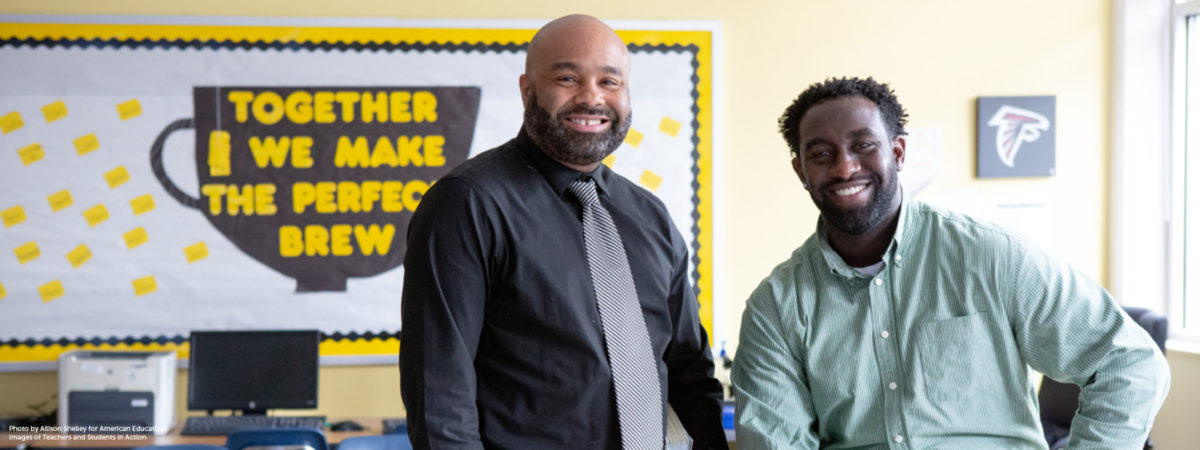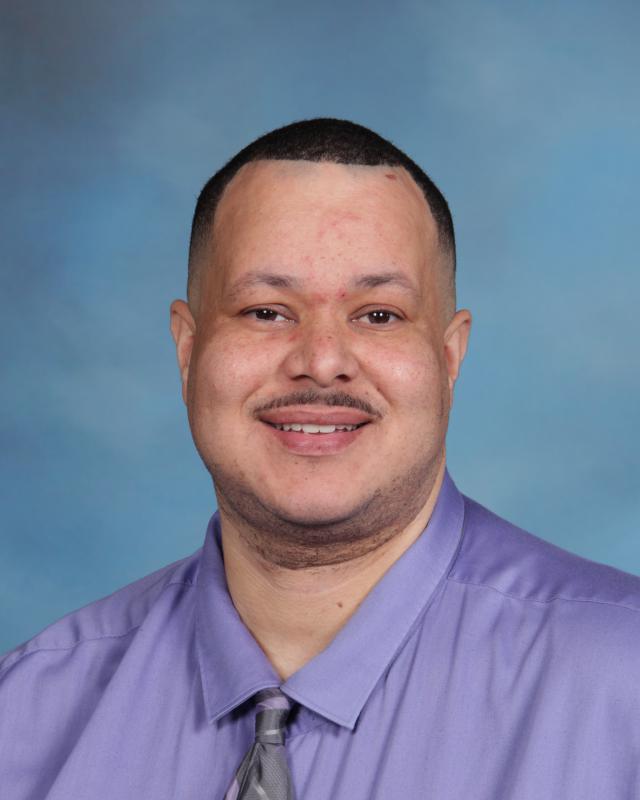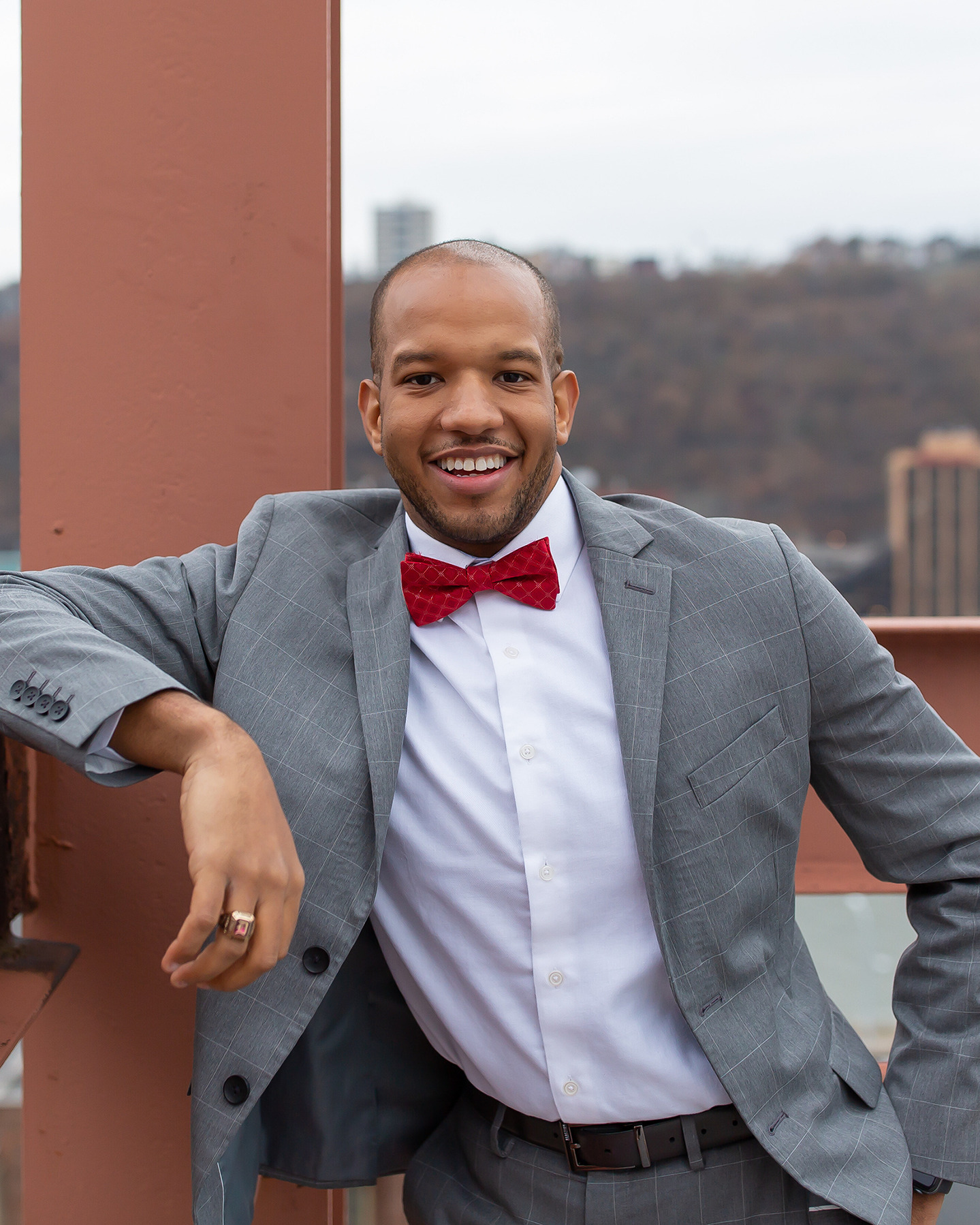
December 2, 2020 | By My Nguyen, Lorenzo Foster and Michael Warren
At the heart of the issue is “a history of biased institutional structures and systems that impede the path for aspiring teachers of color and stunt the careers of practicing teachers of color,” writes Kimberly Smith, executive director of the Center for Inclusive Innovation and the League of Innovative Schools.
Studies show Black students perform better when taught by teachers of the same race, and all students benefit from the exposure and presence of teachers of color. In addition to the likelihood that these teachers share similar life experiences with their students, they are also more likely to have higher expectations of students of color compared to white teachers.
To begin to address this systematic shortage, we turned to teachers of color. Working in partnership with public school districts and charter schools, Malliron Hodge, director of community collaboration and design for Digital Promise, convened educators of color for seven regional Design Studios. Over the course of this year, we invited teachers to develop pipeline and retention solutions, encouraging them to lead with their personal expertise and lived experiences.
The Design Studios were also largely informed by our Teacher of Color Advisory Council, who have been instrumental in spearheading this work. Ahead of this month’s National Teachers of Color Showcase, where the concepts developed in Design Studios will be presented, we asked leaders from the advisory council to share their perspectives as educators.
Below, Lorenzo Foster, an educator from Baton Rouge, Louisiana, and Michael Warren, a former teacher turned assistant principal in Pittsburgh, Pennsylvania, discuss what it is like to be Black male educators in the United States, including what inspired them to pursue the profession and what compels them to stay in it.

Lorenzo Foster
You may wonder why anyone would want to be a teacher. For me, the answer was simple. Equipping students with the fundamental knowledge and tools that ultimately lay the foundation for life skills is one of the greatest gifts and honors bestowed upon a person.
I was inspired to become a teacher because of a dedicated educator who poured her passion for teaching into me. Her selfless act of kindness sparked a burning desire for me to travel the path of becoming an educator.
I attended Caddo Magnet High School in Shreveport, Louisiana, where many of my classmates came from very well-off families. I came from a very poor upbringing. My parents were not college educated, and I endured hardships that many people cannot even imagine. Being underprivileged, I felt inadequate compared to my classmates. Mrs. Thomas, my Biology II AP teacher, sensed how I felt about myself and told me I was just as bright as my classmates and could become anything I wanted to be. Twenty-one years later, those words still resonate with me. I live to inspire my students in the same way Mrs. Thomas inspired me. It is the connections and experiences like the ones Mrs. Thomas and I shared that students hold on to and remember.
When I first started teaching, some of my colleagues were skeptical about my ability to teach a difficult subject like chemistry. Though I was well-educated, I was still judged because of the melanin in my skin. Some colleagues even went as far as to try to test my knowledge of chemistry. For them, it was rare to see a Black man in the sciences, especially chemistry. I did not meet the status quo! The “world” (or at least, their world) was more accustomed to seeing Black men teaching PE or social studies.
I have now been teaching for 10 years, and I currently teach Chemistry I and Chemistry II AP in Baton Rouge. I have realized that I cannot let someone else’s opinion about me define me or determine my capabilities. My innate abilities and knowledge about my area of expertise speak for me and continue to speak for me. Being a Black male educator can mean being a beacon of hope for so many students. I will never let anyone’s perception of me prevent me from being a dedicated educator. I will continue to inspire my students to strive for excellence.
As a teacher you get to witness your students learn, grow, and become successful by applying what they have learned in the classroom through the commitment of your hard work. To me, being a Black male teacher is like being a superhero. Though there are very few of us, we tend to make some of the greatest impacts in the lives of our students just by our sheer presence, relentless dedication, and meaningful testimonies. Gandhi said, “Be the change you want to see in the world.” To be a successful educator, you must be willing to teach the change you want to see in the world. It is Black educators like me who establish firm bedrocks for future generations.
– Lorenzo Foster, St. Michael the Archangel High School (Louisiana)

Michael Warren
All voices matter… unless you are an untenured teacher. Then, your voice doesn’t matter as much. Instead, you are asked to keep quiet, stick to the status quo, and stay out of the way. This is what it feels like to be a Black male teacher in an all-white district where injustice is pervasive.
I want to speak up and defend students and others who are negatively impacted by said injustices, but who’s going to listen to me? Moreover, who is going to protect me if I ruffle the wrong feathers? I want to be a voice for the other Black and Brown individuals in my district, and of course, I want to lead ethically and justly—but at what cost? What if the other district leaders don’t believe there is an issue? Is there an answer to any of these questions? Does my voice ACTUALLY matter?
The answer is YES! Yes, there are answers to these questions. Yes, my voice matters.
Below is a snapshot of the duties expected of Pennsylvania educators, according to the Code of Professional Practice and Conduct for Educators, commissioned by the Pennsylvania Department of Education. As a Pennsylvania educator, I agree to:
As a Black educator, it is important to know what my values are, what my ethical beliefs are, and what the expected code of conduct is, but it is also vital to know what it means to be Black and how that impacts my daily life. I know what it is like to have to advocate for myself, always. I know what it is like to be seen as a physical threat, always, but also not taken seriously in the educational landscape. Given this, being a Black educator offers a unique, invaluable perspective. Because of that, we must speak up, speak out, and speak our truth, no matter the cost.
– Michael Warren, Pittsburgh King PreK-8 (Pennsylvania)
To learn how schools can better support teachers of color, visit our Research Map topic page summarizing the latest research on recruiting and retaining teachers of color, written in collaboration with educator, instructional coach, and advisory council member Monique Belin.
To learn more about our upcoming virtual convening and to register for the National Teachers of Color Showcase, visit the event page.